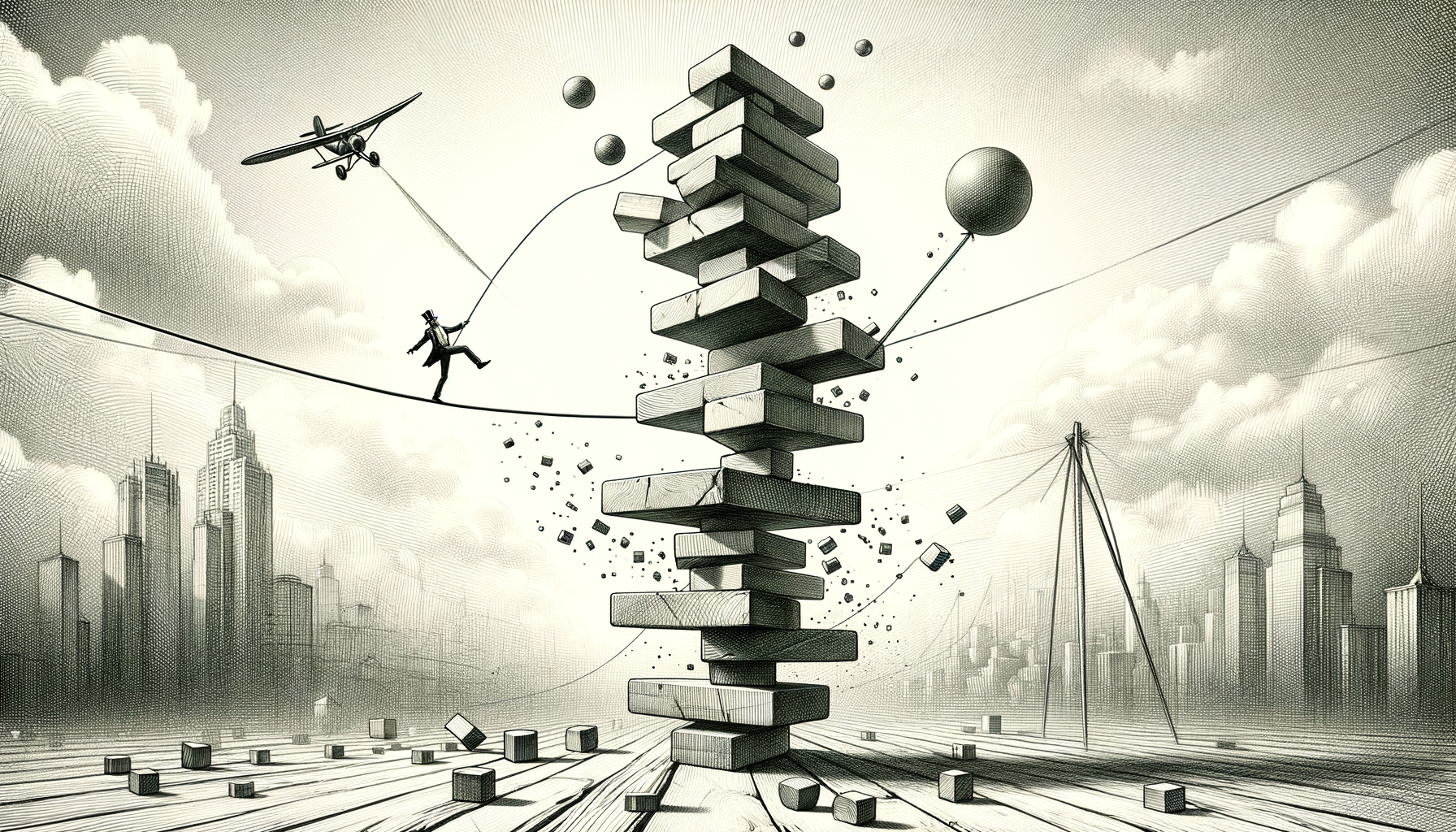You don’t know the sting of a true, glorious failure until you’ve bombed your first theater audition in front of a panel of poker-faced judges who look like they might be debating whether to laugh or cry on your behalf. At least, that’s how it started for me. I was seventeen, halfway into my senior year at a specialized arts high school for budding thespians, a Shakespeare monologue in hand and a dangerous level of misplaced confidence. This wasn’t just any audition; it was for the school’s prestigious spring showcase—the one event practically guaranteed to fast-track you to nearby fame or at least Las Vegas' more indie stages, where serious talent scouts sometimes sipped on overpriced cocktails.
Spoiler alert: I didn’t get the part. But it wasn’t just not getting the part—it was the cringe-packed crash and burn of it all that stuck with me. And though I didn’t realize it at the time, that failure brewed resilience in a way no standing ovation ever could.
Grappling with the Spectacle of Icarus-Level Failure
Let me set the stage for you (pun intended): I walked into the audition room wearing a hastily assembled version of “confidence” straight out of Season 3 of Glee—bold, naive, slightly manic. The panel sat under the harsh fluorescent lights, clutching their clipboards, expressionless. I launched into Juliet’s death speech from Romeo and Juliet with all the overwrought passion of a teenager who thought unrequited love and a math test she didn’t study for were life’s greatest tragedies.
About halfway through, I lost my line. Not forgot—lost. It just floated away, like glitter in the wind, leaving me wide-eyed and stranded in silence. To overcompensate, I performed what can only be described as interpretive acrobatics to “sell” the emotion I was no longer feeling. It was 90 seconds of abject chaos drowned in desperation, and by the time I thanked them and skittered off stage, one of the judges coughed, looking as if he were suppressing something much worse than an allergy attack.
The humiliation stung, sure. The pitying glances from my friends? Stung worse. But what really gutted me was realizing, in that moment, I wasn’t the prodigy I’d hyped myself up to be. My raw talent wasn’t enough—and in the world of theater, failure leaves a loud echo.
Lessons from the Fallout Zone
I spent a good month sulking about this. Think Eat, Pray, Love, but with a lot more teenage angst and significantly fewer international flights. Looking back, though, I understand that failure taught me three big things:
1. Preparation > Passion (Most Days)
Yes, passion is important, but you can’t wing your way to success. Turns out, running through your lines a couple of times with your dog as your audience doesn’t count as rigorous rehearsal. Failure forced me to prioritize preparation—to put in consistent effort over relying on bursts of “natural talent.”
2. Confidence Doesn’t Mean Perfection
This was a big one. For a while, I thought being “confident” meant being polished and impenetrable. But real confidence meant being okay with imperfections, learning to laugh at myself, and being open to constructive criticism. As one of the judges later told me (in what felt like a slightly sneaky midlife-mentor vibe), “Failing where people can see you won’t kill you—it’ll just make you more comfortable in your skin.”
3. The Show Must Go On
Classic showbiz wisdom, sure. But it’s true. I embarrassed myself, then recovered. The world didn’t stop spinning, and Vegas certainly didn’t switch off its lights in protest. Often, it’s less about the failure itself and more about how you steer through the aftermath.
Applying the Theater Meltdown to Real Life
What does a bombed high school audition have to do with, say, real adult problems or figuring out whether you’re ready for a second date? Plenty, actually. Life, like theater, is full of unscripted moments, and how we respond matters more than the “scene” itself.
When I’m writing about dating, relationships, or just frankly trying to get through the weird maelstrom of modern life, those audition lessons come back like old friends whispering in the wings. Here are three ways I’ve applied them (and how you can, too):
-
Preparation Isn’t Just for Job Interviews. Prepping for important events—be it your first big work presentation or a difficult conversation—can save you from regret. This doesn’t mean scripting your entire life, but it does mean showing up fully, with the right tools to succeed.
-
Normalize Embracing Awkward Moments. Think of the last time you completely misread someone’s joke or knocked over your coffee on a date. Those aren’t “failure” moments—they’re authentic, human ones. And, if you learn to laugh at yourself, you’ll probably endear yourself to people even more.
-
Forge Ahead After the Bombs. Whether in love or work, when you don’t “get the part,” let yourself feel the sting briefly, then move on. Each cringeworthy moment builds not just resilience, but stories—and honestly, those are far better conversation starters than perfection ever will be.
Resilient is the New Fearless
If failure were a house, it’d be one of those weird, haunted-looking spots on the edges of Las Vegas—intimidating but fascinating, filled with labyrinthine lessons once you step inside. That high school audition was my first big flop, but it taught me that the very things we try hardest to avoid—humiliation, vulnerability, falling flat on our faces—are the same things that leave us standing stronger in the end.
So here’s my unsolicited but deeply earnest advice to you: Bomb the audition. Faceplant on that nerve-wracking first karaoke night. Tell someone how you feel and risk the awkward silence. Let life hand you those moments where the glitter flies away and you’re left with nothing but honesty, sweat, and (hopefully) a decent story to tell later.
Because, trust me, success feels incredible—but the magic lies in learning how to move forward when there’s nothing left but the sound of your shoes scuffing the stage.




















